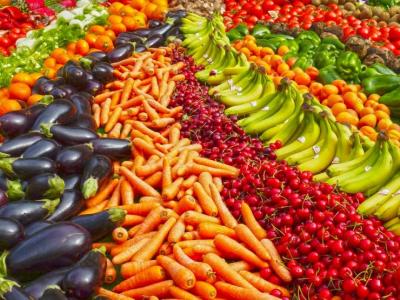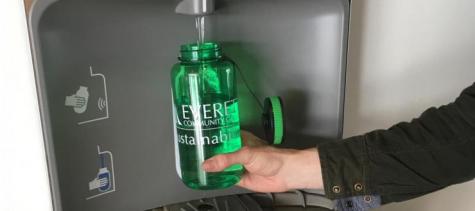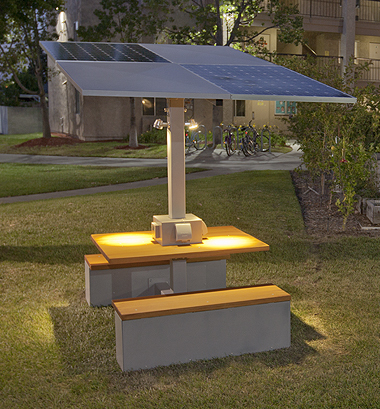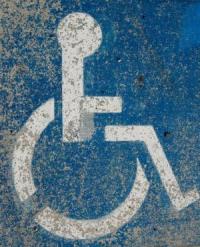Project Examples
Many other colleges and universities in the Pacific Northwest (and nationwide) have taken to student fees to fund their sustainability and environmental goals. Here are some examples of projects they funded through these types of fees. Below are examples of projects that have been undertaken on other campuses, or potential project ideas generated by students for our campus.
Project Examples
Farm to Campus Program
Agriculture and food production are some of the biggest contributors to environmental degradation and greenhouse gas emissions, due to the industrialized processes that many large food corporations have adopted. However, by bringing local, organic food directly from farms in our area, we are avoiding many of the issues associated with intensive agriculture. Not only do programs like this encourage healthier dietary habits and benefit the environment, but they also support the local economy.
Honey Bee Colonies
Most people are aware of the declining pollinator populations, which may threaten food supplies across the globe. Many college campuses practice raising honey bee colonies and implementing landscaping strategies that are conducive to the health and wellbeing of people, plants and animals (including bees!), and can even beautify campus grounds.
Green Chemistry
Green chemistry is defined as the development and implementation of chemical products and processes to reduce or eliminate health risks associated with, but not limited to, hazardous substances used in many chemistry labs around the world. This can take the form of inventorying chemicals and properly disposing of those that do not get used, and designing chemistry experiments for curriculum that incorporate green elements.
 Renewable Energy Projects
Renewable Energy Projects
While EvCC has a 19 kWh solar demonstration on the roof of liberty hall, the amount of green energy is almost negligible relative to EvCC's consumption of electricity (although they still produce enough green energy to power two average-sized family homes each year!). There is still plenty of opportunity to increase the amount of renewable energy used on campus, like solar or wind power.
Rain Gardens
In rainy Western Washington, significant amounts of rain water containing pollutants from yard chemicals, motor oil or other toxic substances enters our stormdrains and eventually empties into Puget Sound. Rain gardens are natural filters that remove pollution from rain water and returns it to the water table, helping to recharge aquifers and keep our streams and other waterways clean and healthy.
Water Bottle Fill Stations
Did you know that in the United States alone, we go through enough disposable water bottles in one week to stretch around the globe two times. That's a lot of plastic that ends up in landfills, estuaries and oceans. Though we already have a few water bottle fill stations, most buildings on campus still need to be retrofitted so we can continue to reduce our campuses reliance on disposable water bottles.
Bike Rentals
Bicycling is one of the most efficient modes of sustainable transportation in urban and suburban areas. Its a healthy and sustainable way to get around, and allowing students to rent bicycles has several benefits. Now with our two student housing buildings, a program like this just makes sense for our campus!
Eco-Scholarships
Some colleges have used the funds from their sustainability fees to offer mini-scholarships to STEM students, specifically those studying environmental sciences or engineering.
ADA Compliance and Improvements
Some colleges have invested in improving their accessibility standards for individuals with short and long-term disabilities. Sustainability isn't just about protecting the environment, it also incorporates principles of social justice and equity, and one way to promote these principles is by removing barriers that may make it challenging for specific groups of people to achieve educational success.
Environmental-focused Conferences and Seminars
One of the best ways to advance sustainability in society is to educate the public on the risks of certain practices and the solutions to many of our environmental challenges. Hosting on campus events with an environmental education focus is commonplace, as well as sending students to off-campus conferences such as the AASHE conference.
STARS Assessments
While STARS Assessments are just one way to interpret data and determine the progress of our campuses sustainability mission, its important to have monitoring systems in place. We can't manage what we don't know, so collecting and sharing data about how we are doing is essential to the success of being sustainable.
Solar Powered Charging Stations
Pretty much everyone has a cell phone or laptop they use regularly on campuses today. We often like to sit outside when the weather is warm, but just as often there isn't a way to charge our devices outside. One unique solution to this problem is installing benches with solar panels hooked up to a USB port or 12 volt outlet. Not only does this provide a place to sit and charge our phones and laptops outside, but it does so through completely clean, green energy!
Rainwater Harvesting Tanks
Our campus uses millions of gallons per year to keep the grass green and the flowers blooming (not to mention hydrating the students and employees). While we are fortunate enough to live in a region where water supplies are plentiful, it's still important to reduce how much we consume. By harvesting and storing rain water to irrigate our gardens, we could save a significant amount of water used for landscaping and campus grounds.


